Consumer sentiment research
Australian perceptions about the red meat industry
Project overview and objective
Understanding consumer sentiment towards the Australian red meat industry is key to informing our investments in community communication and marketing to drive better understanding of red meat production and nutritional benefits for everyday Australians.
MLA has been conducting work with Pollinate market research company each year since 2010. These insights now span a 12-year period, providing us with valuable historical data on trends in trust, attitudes, consumption and purchasing habits of red meat in Australian metropolitan areas.
Positive perceptions of the red meat industry
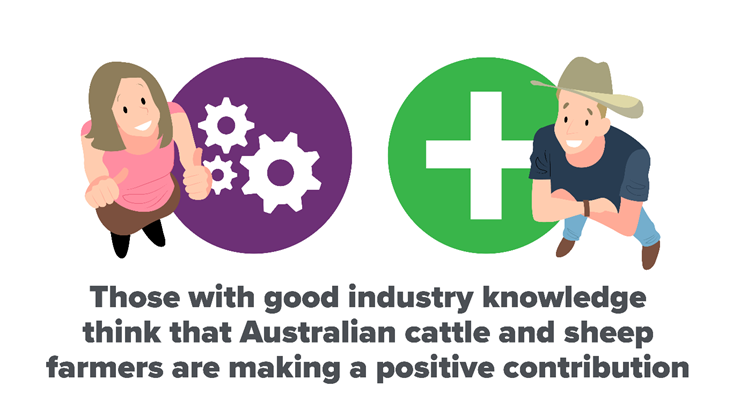
Our most recent research conducted in 2021 indicates that 2 in 3 Australians feel good about the beef and lamb industry.
Perceptions of the Australian red meat industry are relatively strong, and knowledge of the industry among consumers in metropolitan Australia is growing. Interestingly, the insights also show that positive community sentiment is correlated with the community’s understanding of our industry.
Pollinate Pulse research data highlights that farmers are amongst the most trusted members of the Australian community, alongside doctors and scientists.
Consumers’ knowledge of the industry boosts perceptions
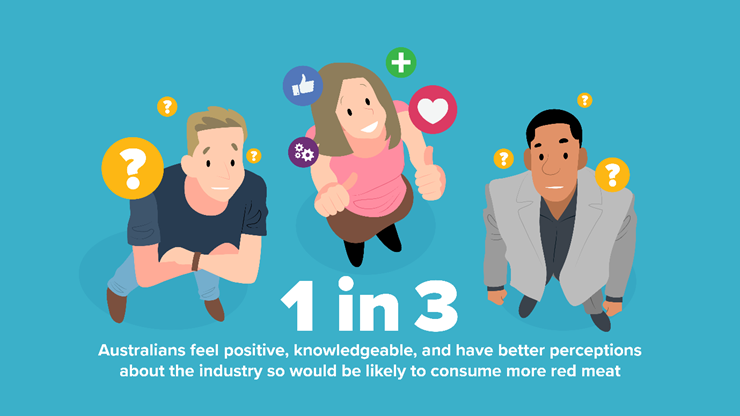
Drilling down into the details of the research, of the 31% of consumers who feel they are knowledgeable about the industry, they also feel more positive towards the production of red meat in Australia, including that cattle and sheep producers:
- care about the environment
- produce livestock in a humane manner
- make a positive contribution to society.
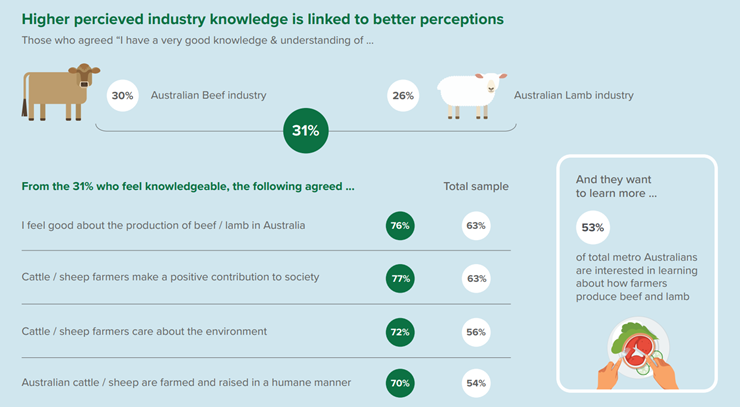
This group also believe it’s important for school children to learn more about how the industry produces beef and lamb.
In addition, more than half of the metro Australians involved in the 2021 research were themselves interested in learning more about how beef and lamb is produced.
These insights also reflected the growing impact of MLA’s programs on building community trust in the red meat industry.
With the knowledge that the red meat industry has a goal to be carbon neutral by 2030 (CN30):
- 53% of metro consumers thought more positively about the red meat industry,
- and among those who claim to have a good industry knowledge, 65% would feel more positive towards the industry if it can achieve this goal.
Consumption patterns are relatively stable

The consumer research also asked questions about how much red meat they are eating. Importantly, purchasing and consumption of red meat has remained relatively stable over the past 12 months, and two out of three consumers plan on eating the same amount of red meat or increasing their consumption during the next year.
Those with higher industry knowledge are more likely to have increased their red meat consumption compared to the data from last year.
The top reasons people gave for eating more red meat are:
- source of protein
- they like meat
- source of nutrition
- source of iron.
The top reasons for eating less red meat are:
- too expensive
- health concerns
- environment
- animal welfare
Who isn’t eating red meat?
MLA’s consumer sentiment research showed the number of consumers who claim to be vegetarian has remained relatively stable over the past few years.
Less than 10% of consumers claim to be vegetarian – a slight increase compared to last year – but 58% of those who claim to be vegetarian, still eat meat occasionally, so those who are ‘true’ vegetarians or vegans remains around 4% of metro Australians.
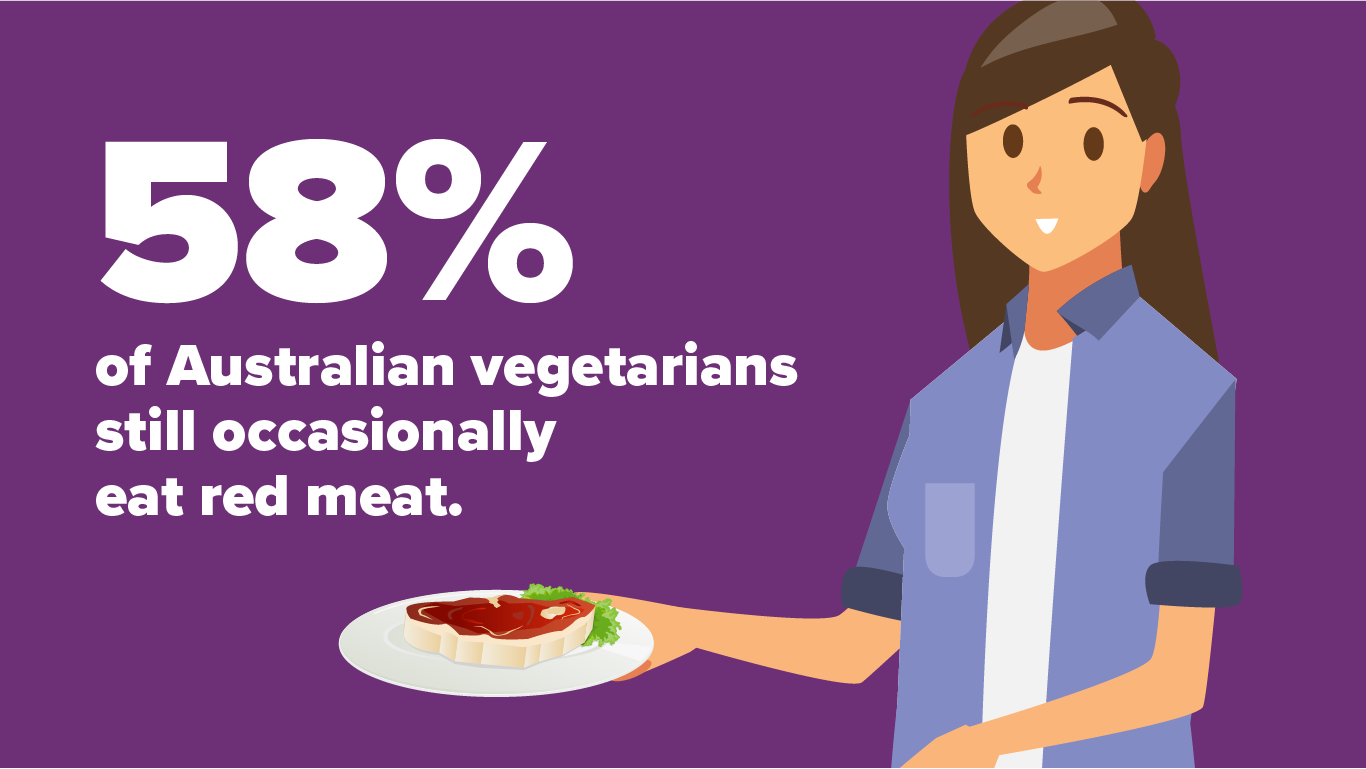
Source of information
The internet is the key source of information consumers turn to for red meat nutrition, animal welfare and environmental impact and in 2021, health organisations and industry bodies started playing a bigger role in keeping Australians informed.
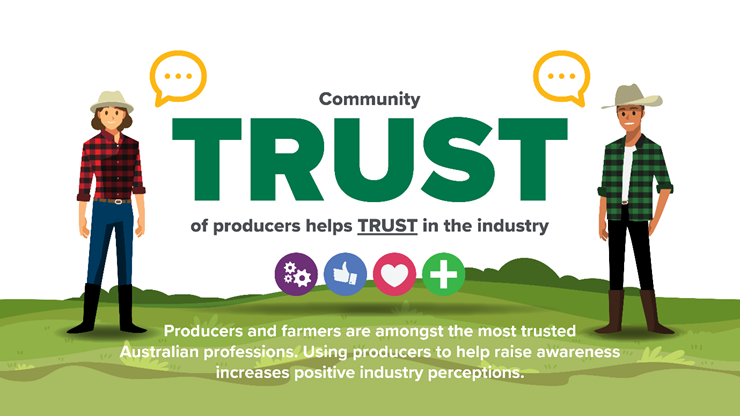
How we use the research
MLA uses this annual research to inform the community communication and marketing activities it undertakes on behalf of the red meat industry, an important component of which is demonstrating how Australian red meat producers are ethical and responsible custodians of livestock, land and natural resources.
Our focus is to share with the community that the Australian red meat and livestock industry is an ethical and responsible custodian of livestock, land and natural resources.
Through MLA’s community communications brand, Australian Good Meat, we are able to provide this information to the public in a clear and transparent way through their most trusted channels to have our positive messages heard which will ensure our industry can remain sustainable now, and into the future.
MLA’s main community engagement priorities are:

Community sentiment: Maintain positive community sentiment towards the red meat industry, highlighting care for environment and animal wellbeing, and the role of red meat in a healthy balanced diet.
Tell our positive stories: Showcase producers’ stories to share their knowledge with the community on the journey from paddock to plate.
Red Meat, Green Facts: Provide easy to understand facts on the red meat industry to bust myths and build industry knowledge.
School education: Build teachers’ and students’ knowledge through curriculum aligned topics on the red meat industry.
Learn more about MLA’s Community Programs
Downloads


